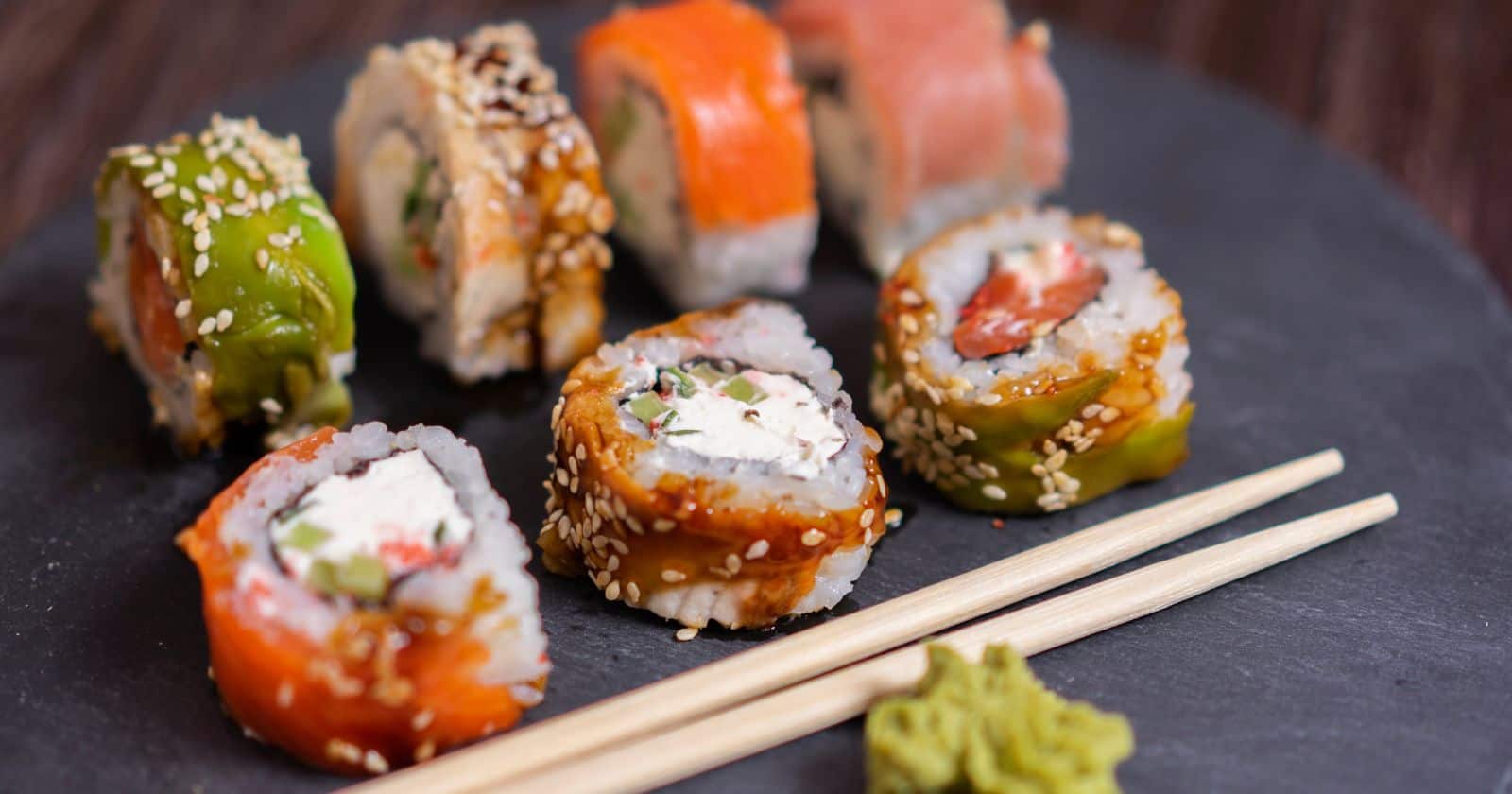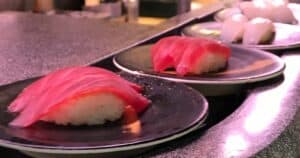As someone looking into embryo transfer, you may be wondering – can I still enjoy my favorite spicy tuna rolls? Or is sushi off limits? It’s a great question, since embryo transfer is a critical time when you want to give your body the best possible nutrition to support implantation.
The facts on sushi aren’t black and white. Some sources say to avoid it completely before embryo transfer because of risks like toxoplasmosis from raw fish. But other experts say it’s fine during pregnancy as long as you choose cooked options versus raw fish.
Here’s the scoop. Stick to sushi made with cooked seafood like shrimp, eel or crab. Pass on raw fish options for now to be safe. Focus on warm, easily digestible foods so your body doesn’t waste energy on digestion. Skip the coffee and alcohol which can interfere with implantation. Eat plenty of fertility-boosting foods like leafy greens, citrus, avocados and lean protein.
Sound doable? The key is choosing the right options. In this article, I’ll walk you through exactly what to eat and avoid when sushi cravings strike before embryo transfer. I’ll also share my favorite pregnancy-safe sushi recipes. Read on for everything you need to know to make the healthiest choices during this special time.
The Facts on Eating Sushi Before Transfer
There are mixed opinions on eating sushi before embryo transfer. Some experts recommend avoiding it completely because raw fish carries a risk of infections like toxoplasmosis. However, others say it’s fine during pregnancy as long as you choose cooked options versus raw fish.
Here are the key points on sushi before embryo transfer:
- Raw fish poses an infection risk. Pathogens like toxoplasmosis can rarely be found in raw fish and cause flu-like symptoms. This could impact implantation.
- Cooked sushi options are safer. Shrimp, eel, and crab sushi have lower risks. Avoid raw tuna, salmon, yellowtail, and other raw fish.
- Eat warm, easily digestible foods. Your body needs energy for implantation, not digestion. Sushi is cold and can be harder to digest.
- Avoid risky foods and drinks. Caffeine, alcohol, processed foods and high-mercury fish aren’t recommended.
- Focus on fertility-boosting meals. Eat plenty of leafy greens, citrus, avocados, nuts, seeds, whole grains and lean protein.
The bottom line: you can still enjoy sushi before embryo transfer if you choose cooked options and minimize raw fish. But a diet focused on fresh, nourishing fertility foods is ideal.
Safest Sushi Options Before Transfer
If you want to enjoy sushi before embryo transfer, these are the best options:
Cooked Rolls
Opt for rolls made with cooked seafood like shrimp tempura rolls, crispy shrimp rolls, or california rolls (with mock crab). Surimi seafood is cooked and safer than raw versions.
Eel (unagi) and smoked salmon rolls are other good cooked choices. And vegetarian rolls like cucumber rolls also carry no raw fish risks.
Cooked Nigiri/Sashimi
If you want sashimi or nigiri, choose cooked options like eel, octopus, shrimp and crab. Again, cooked fish has lower infection risks.
Rice Dishes
Sushi rice dishes like chirashi don’t contain raw fish. Or try inari sushi, made with fried tofu pockets.
Rice and noodles like ramen make great alternatives if you want to skip fish entirely.
Low-Mercury Fish
Some fish tend to be lower in mercury, like salmon, tilapia, shrimp, pollock, cod, canned light tuna, and catfish. So these are safer raw fish options if you want to indulge minimally.
Plant-Based “Sushi”
Using veggies or fruits rolled in rice and nori sheets gives you the sushi experience without any raw fish. Try rolls with cucumber, avocado, mango, bell pepper or carrot.
Foods to Avoid Before Embryo Transfer
It’s also important to know what foods to avoid leading up to your transfer day for optimal implantation chances:
- Raw fish: Because of infection risks, it’s best to avoid raw tuna, yellowtail, shellfish, oysters and any questionable sushi.
- Caffeine: Studies show caffeine consumption can lower implantation rates. Stick to decaf or avoid entirely.
- Alcohol: Alcohol can disrupt hormones and implantation. Avoid drinking in the weeks before and after embryo transfer.
- Processed foods: Food additives, refined carbs and trans fats create inflammation. Eat more whole, unprocessed foods.
- High-mercury fish: Swordfish, tilefish, ahi tuna, mackerel and shark contain high mercury levels that can impact fetal health.
- Unpasteurized items: Soft cheeses, raw milk/juice and raw sprouts could contain harmful bacteria like Listeria. Choose pasteurized options.
The two week wait after embryo transfer is about providing your body with the best nourishment possible. Avoid risky foods and drinks and focus on a balanced fertility diet.
Creating an Optimal Fertility Diet
In the weeks before and after embryo transfer, the right diet can increase implantation chances and support a healthy pregnancy. Here are some fertility-boosting foods to focus on:
Leafy Greens
Leafy greens provide key nutrients like folate, iron, and vitamin K. Aim for a few servings a day of spinach, kale, chard, lettuce and more.
Fruits & Vegetables
Fruits and veggies deliver antioxidants, fiber, vitamins, and minerals. Eat a rainbow of produce like citrus, berries, peppers, sweet potatoes, tomatoes, green beans, and brassicas like cauliflower or broccoli.
Lean Proteins
Protein provides the amino acids needed for fetal development. Choose plant-based proteins like beans, lentils, and tofu as well as organic poultry, eggs, and fatty fish like salmon.
Whole Grains
Complex carbs from whole grains give you energy and B vitamins. Opt for brown rice, oats, quinoa, whole wheat pasta and 100% whole grain bread.
Healthy Fats
Monounsaturated fats support hormone and reproductive health. Eat avocados, nuts, seeds, olive oil, and fatty fish like salmon.
Fresh Herbs & Spices
Herbs and spices add flavor and provide compounds that can support implantation. Use turmeric, cinnamon, ginger, garlic, basil, black pepper and more.
Making balanced meals with whole foods ensures your body has all the nutrients it needs for a successful embryo transfer.
Supplements to Support Implantation
In addition to a healthy diet, certain supplements can optimize fertility and support implantation:
- Prenatal vitamin: Ensures you get enough folate, iron, and key nutrients during the preconception period.
- Probiotics: Help maintain a healthy vaginal and gut microbiome for implantation.
- Omega-3s: Anti-inflammatory fatty acids like DHA support fertility and fetal development.
- CoQ10: An antioxidant that may help improve egg quality.
- Vitamin D: Helps regulate ovulation and hormone balance. Get your levels tested.
Always talk to your doctor before taking supplements, especially when trying to conceive.
Lifestyle Tips for Transfer Success
Your diet is just one part of setting yourself up for embryo transfer success. Here are some other lifestyle tips:
- Minimize stress. Try yoga, meditation, journaling, and other relaxation methods. High stress can hinder implantation.
- Get moderate activity. Light walking and movement is great, but avoid strenuous workouts that overheat the body.
- Stay hydrated. Drink plenty of purified water and herbal tea. Dehydration can cause uterine contractions.
- Get acupuncture. Acupuncture may increase blood flow to the uterus and support implantation.
- Avoid hot baths. Stick to showers, since baths can disrupt implantation by raising your core body temperature.
The more you can nourish your body and reduce external stressors, the better your chances of a successful transfer.
The Takeaway on Eating Sushi Before Transfer
While you may need to make some modifications, you can still enjoy sushi leading up to your embryo transfer. Stick to low-risk cooked options, and avoid raw fish and risky drinks like alcohol. Focus on incorporating fertility superfoods and lifestyle habits that support your chances of implantation and a healthy pregnancy.
Frequently Asked Questions
Is it safe to eat vegetarian sushi?
Yes, vegetarian sushi rolls made with ingredients like cucumber, avocado, mango, or bell peppers are completely safe to eat before embryo transfer. Plant-based rolls avoid any risks associated with raw fish and make a smart choice.
Can I eat sushi right after the embryo transfer?
It’s best to wait about 2 weeks after the embryo transfer before eating any raw fish. This allows time for the embryo to successfully implant and reduce infection risks during this critical period. After 2 weeks, low mercury raw fish like salmon or shrimp can be cautiously reintroduced.
Is sushi safe to eat when trying to conceive?
Raw fish does pose a slightly higher risk when trying to conceive. To be extra cautious, stick to cooked sushi options like shrimp tempura rolls when TTC along with an overall fertility-focused diet. Once pregnant, continue to avoid raw fish to reduce infection risks.
What are the best foods to eat before embryo transfer?
Focus on warm, nutritious foods that are easily digestible like bone broths, oatmeal, quinoa, soups, cooked veggies, and anti-inflammatory foods like leafy greens, berries, avocados, nuts, seeds, and olive oil. Stay hydrated with water and herbal tea.
Are there any drinks I should avoid before embryo transfer?
Yes, avoid any alcohol, coffee, energy drinks, or soda for optimal implantation chances. Stick to water, herbal tea, fresh juices, smoothies, milk, and electrolyte drinks. Caffeine and alcohol can disrupt your hormones and uterine lining receptivity.





